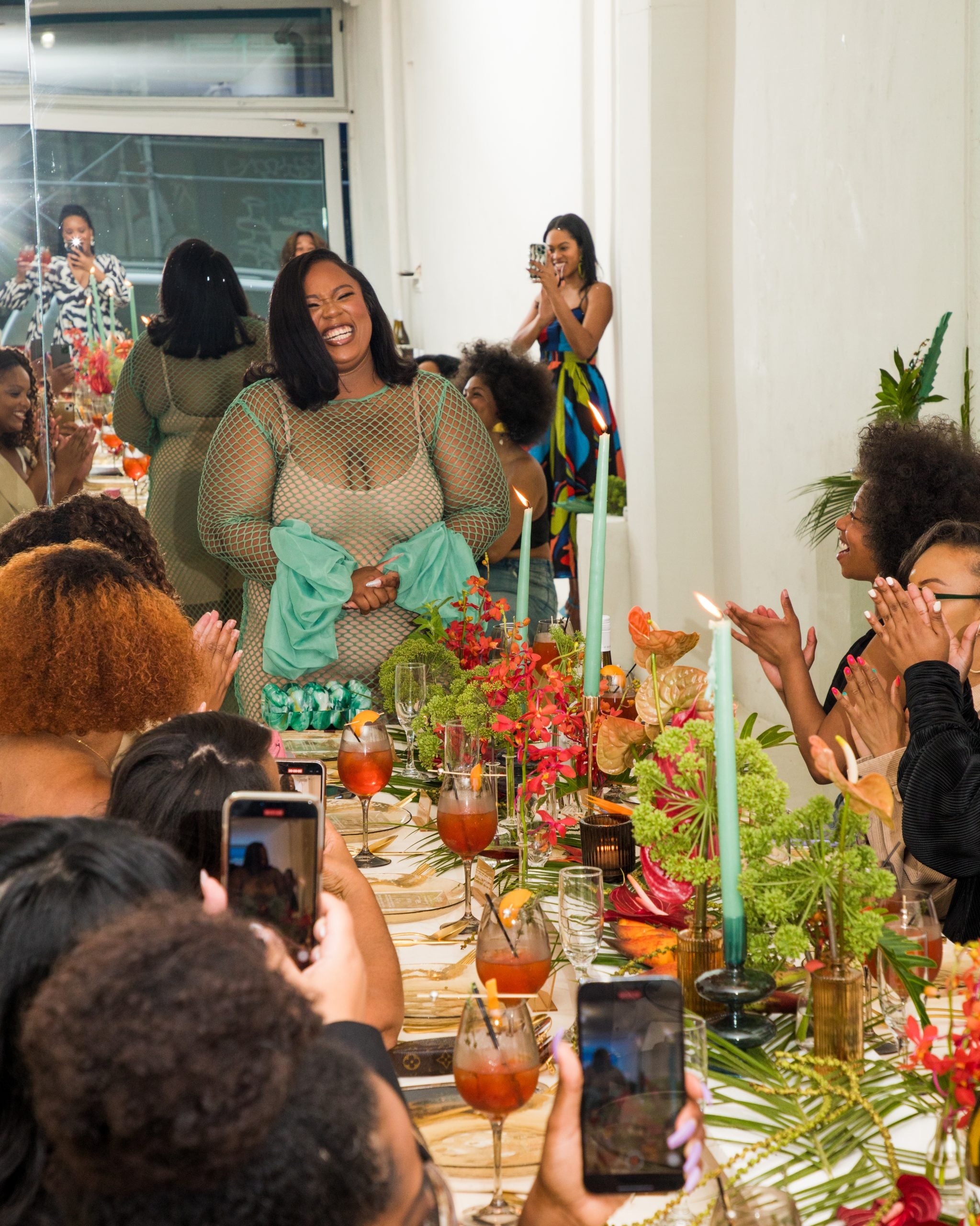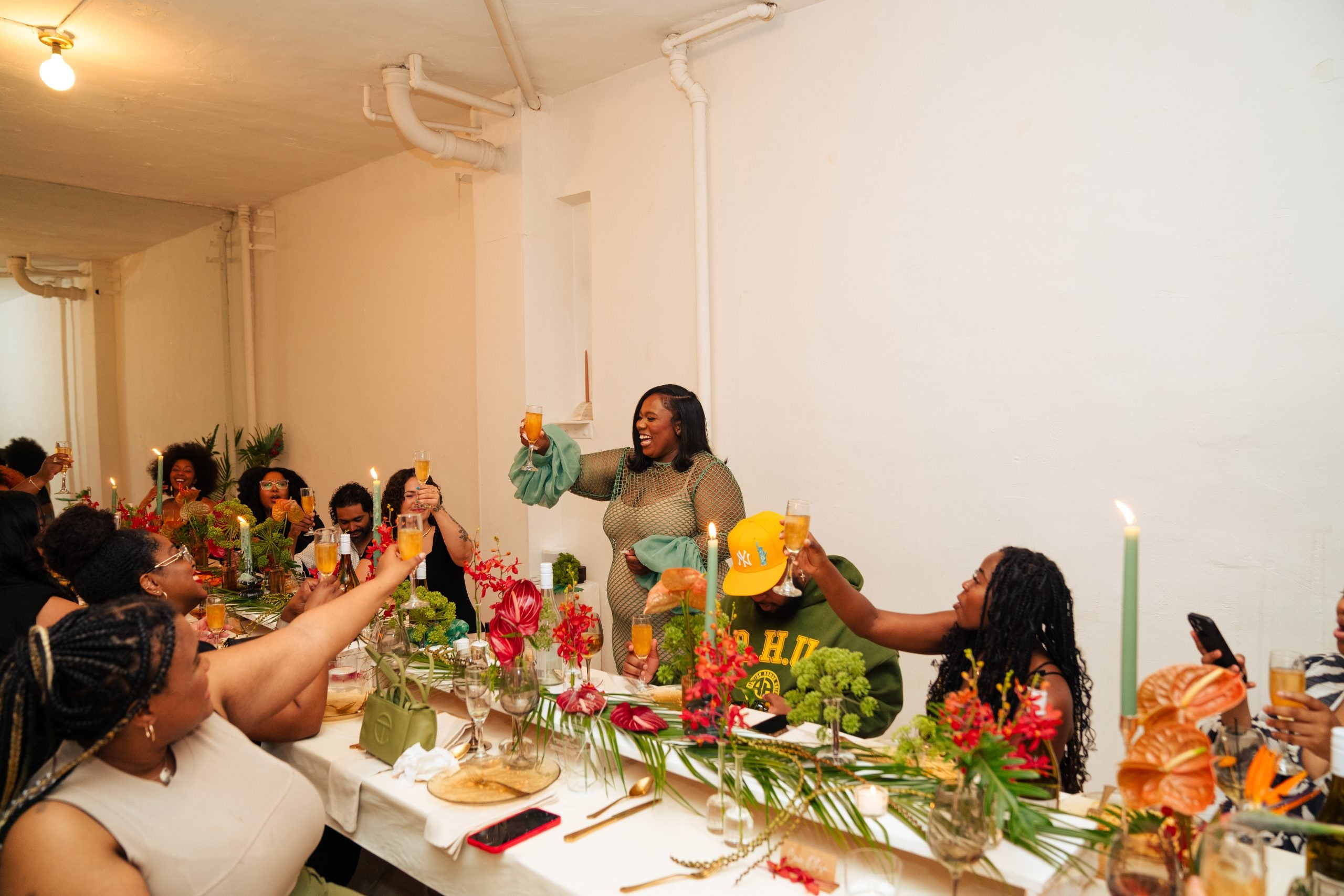
Experiences in life can either hold you back or be a catalyst to a new calling. For Yasmine Jameelah, founder of the community Transparent Black Girl, she made it her mission to use her own life lessons to not only prioritize wellness, but to also show others how to be vulnerable enough to share their own.
During her college years, the New Jersey native battled with social anxiety and depression. Jameelah decided to go to therapy and start a personal blog about her wellness journey. As the therapy sessions were giving her space to discover herself more, she also found that sharing her journey with others online was therapeutic as well, creating an unexpected community that, today, has a reach of over three million Black women.
“At the time, there were women in different countries reading my writing and I felt that it was time to take things a step further. They would say that they loved how transparent I was, so I decided I wanted to create a community called Transparent Black Girl. I didn’t start off with these girl boss intentions. My goal was literally to create a space for Black women to feel comfortable as they ease into wellness,” Jameelah tells ESSENCE.
Transparent Black Girl, within the Transparent & Black collective, has grown into one of the largest online wellness platforms created for and by the Black community, offering a space for women to heal out loud and live their lives in their own way. Transparent Black Girl has been able to provide programming that gives members different options to choose from within the wellness ecosystem. “With TBG, we have done all kinds of programming, from twerk sessions to reclaiming autonomy over our bodies,” she says. “We meditate and learn about crystals, we speak with intergenerational trauma experts, and we learn from nutritionists without dismissing our culture. The beauty of TBG and TB is that we are Black centered.”

This year, Transparent Black Girl will be celebrating their five-year anniversary. To honor the last five years of growth and success, the team hosted a dinner sponsored by ASICS, Ami Cole, Topical, and TPH by Taraji.
“I am really excited about it. It’s going to be a beautiful evening of us surrounding ourselves with women who are in our community and brand partners who have supported us all these years. We are taking a moment to say thank you and celebrate what’s to come,” Jameelah expressed ahead of the event.
While there is much celebration to be had, the organization also plans to hit the ground running to continue their work, launching mental health programming for teen girls. According to a recent CDC report, nearly three in five teen girls in the U.S. have felt persistently sad or hopeless in recent years. With that, nearly one in three teen girls have seriously considered attempting suicide, which is a 60% increase compared to reports from a decade ago.
There are plenty of factors that could have contributed to these numbers, but the reality is that teen girls are having mental health challenges and it’s time to change that. Jameelah wants to develop offerings that are tailored for that group to have a healthier relationship with mental health from a holistic view.
“I think it is important to empower the women in our community, but also take a step back and not miss out on a generation of girls. They are experiencing things right now and if we can catch them at this age, it would have a huge impact and will stick with them as they grow older,” Jameelah notes.

She continues, “We are currently in talks with a couple of young girls organizations for future partnerships. The first two types of programming that we will be starting are body positive dance therapy and mental health workshop sessions. With dance therapy, we want the girls to appreciate their bodies more in every stage that it is in. This is the age where we start to pick apart our bodies and criticize them. So this program can help with being more grateful for our bodies and how it serves us as humans. For the mental health sessions, we would help the girls understand the full range of their emotions and shift the narrative of having an attitude or being irritable, because those could be signs of depression. These sessions would also help with legislature and encourage the girls to recognize when to speak up when they need mental health days and normalize that.”
Communities like Transparent Black Girl are proof that we need more spaces that encourage us to see wellness as something as multifaceted as we are as people. When it comes to Black women and healing, there is not a one-size-fits-all approach. The more we acknowledge that wellness depends on individual needs, the more we are better equipped to deal with generational trauma and help those that come after us. Jameelah and the Transparent & Black collective understand that.
“For Transparent & Black, one of our goals is to build a database of different professionals in the wellness ecosystem such as Black therapists, Black herbalists, Black doulas, Black financial advisors, etc,” she says. “We want to be a true resource for our community.”





